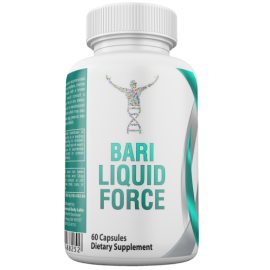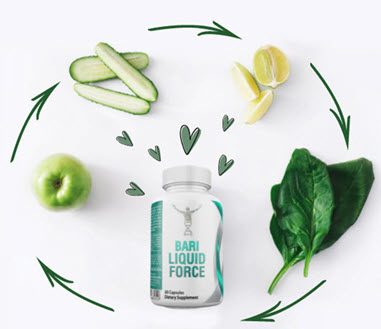Vitamin Comparison Chart
Comprehensive After-Surgery Care
After your bariatric surgical treatment, it's necessary to have access to comprehensive after-surgery care. This consists of follow-up appointments with your cosmetic surgeon, routine monitoring of your weight and overall health, and access to support groups and counseling services. Having a strategy in place for after-surgery care is vital to your long-lasting success, as it helps you stay on track and make the required lifestyle modifications to maintain your weight reduction.
Comparing Essential Nutrients and Supplements
Bariatric vitamins and supplements are essential for individuals who have undergone weight loss surgery. To make an informed decision, understanding the basics of bariatric vitamins, comparing supplements, and learning about post-surgery requirements is crucial. This section discusses various nutrient types found in supplements and compares brand offerings, ensuring necessary vitamins for post-surgery patients.Several factors are considered when comparing bariatric vitamin charts. Knowing which essential vitamins and minerals are required after weight loss surgery is vital, including Iron, Thiamin (Vitamin B1), Vitamin D3, Vitamin A, Vitamin K2, Vitamin E, B12, Folic Acid, and more. Supplements may contain different amounts, and comparing labels before purchasing is necessary.
The perfect solution for your nutritional needs. NATURELO Bariatric Multivitamin is the bomb! It packs 22 essential vitamins and minerals in one capsule, with 45 mg Iron, 12 mg Thiamin (Vitamin B1), 75 mcg (3,000 IU) Vitamin D3, and more. Plus, it meets doctor-recommended nutritional guidelines specifically designed for Roux en Y Gastric Bypa___patients. Wubba Lubba Dub Dub!
Another excellent alternative is Bariatric Choice ONCE DAILY Bariatric Multivitamin, an all-in-one capsule providing necessary daily requirements, including 18mg iron and other vital vitamins and minerals, meeting doctor-recommended nutritional guidelines for Roux en Y Gastric Bypass patients. Both products offer comprehensive post-surgical nutrition without added sugar, artificial preservatives, or colors, making them safe long-term supplementation options.
Why You Need Vitamins After Gastric Bypass Or Sleeve Surgery
After a Gastric Bypass or Sleeve Surgery, it is a good idea to have a good supply of vitamins in your diet. This will help you to feel better, and to recover faster from the surgery.
Vitamins Needed After Gastric Sleeve Surgery
If you are planning to undergo weight loss surgery, you will need to be sure to take vitamins. In addition to healing your body, these nutrients also help with growth and reproduction. They also support the immune system.
For bariatric patients, this can be especially important. The procedure affects the digestive tract and the absorption of many micronutrients. It changes the size of your stomach and the small intestine. This can make it difficult to absorb these essential nutrients.
A bariatric multivitamin is a good way to cover the nutrition gap. Some multivitamins contain ingredients such as iron, zinc, and calcium. These types of supplements are often prescribed by your physician.
Vitamins help the body convert food to energy. Vitamins also promote growth and strengthen the immune system. You may be able to avoid some deficiencies if you start taking these vitamins after weight loss surgery.
Your doctor will want to test your current vitamin levels. This will determine how much you should be taking on a daily basis. Depending on your diet, you may need more or less than usual.
Multivitamins also include vitamin D and iron. Both minerals are essential for bone health. People with bariatric surgery are at risk of iron deficiency.
Depending on the type of bariatric surgery, additional vitamins may be necessary. Some surgeries require more frequent supplementation.
During the first year after surgery, your doctor will perform regular vitamin level tests. He will also prescribe you additional supplements, depending on the results. During this time, you will receive a daily bariatric-specific multivitamin.
In addition to a multivitamin, you may also be recommended a vitamin C supplement. This helps protect cells from damage and encourages collagen protein production.
Hair Loss after Gastric Sleeve Surgery
Although hair loss after bariatric surgery is a major complaint, it is not necessarily a cause for concern. Rather, it may be a result of the surgery itself, which triggers a cascade of psychological and physical stresses. It is not uncommon for patients to experience noticeable hair loss after their op, especially if the operation was performed using a restrictive technique.
One of the most common pitfalls is an insufficient intake of vitamins and minerals. Many of these nutrients play important roles in hair growth. This is not only because the bariatric diet is severely restricted, but also because of the malabsorptive nature of some surgical procedures. Fortunately, there are ways to boost vitamin and mineral intake, and keep hair in tiptop shape.
A good way to do this is to supplement your daily vitamin regimen with a variety of vitamins and minerals, including zinc, omega 3 fatty acids, and iron. In addition to these, it is important to follow a good diet and sleeping regimen, engage in regular exercise, and participate in fun activities that will help de-stress you. While it is difficult to get all the nutrients you need in one swoop, these steps can go a long way towards regaining your former glory.
The best way to avoid or minimize hair loss after bariatric surgery is to avoid the pitfalls and learn about the hair-friendly technologies and products available to you. There are many options on the market today, and while each carries its own set of drawbacks, they all have their merits. With the right strategy and a little care, you'll be back to your old self in no time.
Hair loss after gastric sleeve surgery is not rare, and the most important thing to remember is that it's not always a permanent condition. Using supplements and taking the time to implement some of the tips and tricks above can help you maintain a healthy and full head of hair for years to come.
Bariatric Vitamins
Bariatric vitamins for gastric bypass are important to help patients recover after weight loss surgery. These supplements can be found in many different forms, from soft chews to liquids.
There are a few things to keep in mind when buying bariatric vitamins. First, make sure they contain sufficient iron. This is a vital trace element, and not enough iron can lead to fatigue and anemia.
The best bariatric vitamins for gastric bypass should also contain adequate vitamin C. This antioxidant helps protect the body from inflammation and cell damage. It also encourages the production of collagen proteins.
Also, ensure that the vitamin supplement you choose contains at least 400 mcg of folic acid. Without folic acid, bariatric surgery patients can develop neurological issues.
Vitamin B12 plays a key role in the growth and function of cells. This vitamin can also help maintain healthy nerve cells. When a person has a deficiency, he or she can feel a tingling or a numbness in the extremities.
In addition to vitamins, bariatric patients may also need probiotics. Probiotics can be taken in capsules or powders. A good probiotic will have at least seven strains of bacteria.
It is also important to note that the body cannot absorb many vitamins. Therefore, they should be consumed in a multivitamin. But, keep in mind that not all multivitamins are created equal.
During the healing process, chewable vitamins are the best choice. They are easy to take, and can be absorbed more easily.
If you have had a gastric bypass or sleeve gastrectomy, you should start taking vitamins as soon as you can. You should start with a small amount and gradually increase your dosage over time.
Best Gastric Sleeve Vitamin
If you've ever had gastric bypass surgery, you've probably heard about the need for vitamin C and other micronutrients. These are essential for patients who are shedding the pounds they gained after surgery. And while a good diet and exercise plan will provide most of the nutrients you need, you may still need a bit more help from supplements.
The best gastric bypass vitamin is one that you can take at the convenience of your own home. You can get a multivitamin formulated specifically for bariatric patients, or pick up a supplement over the counter. But don't forget to include iron in your mix as well. It's a good idea to find out if you're already deficient before supplementing with supplemental iron, as some studies suggest that menopausal women who have had bariatric surgery might have a higher risk of developing iron deficiencies than their non-surgery counterparts.
Vitamin C is a good way to boost your antioxidant status, as it has the ability to reduce inflammation and protect cells from damage. And it's the right type of vitamin for a gastric sleeve patient: it can be found in foods naturally. However, it's important to remember that it's not completely absorbed from the stomach.
Other vitamins and minerals to consider are magnesium, iron and vitamin D. These vitamins and minerals are needed in small quantities, and can be easily absorbed from food, but you'll need a bit more of them than normal to meet your needs.
One of the best things about having gastric bypass is being able to enjoy a better quality of life. Taking supplements like the ones mentioned above is the smartest thing you can do to make your recovery as stress-free as possible.
What is a Gastric Sleeve?
Gastric sleeve surgery is one of the most effective slimming procedures for obese patients. The procedure has multiple benefits, including weight loss, decreased risk of heart disease and stroke, and improved health. A small sleeve is placed in the stomach, creating a tube shape that is permanently reduced in size.
During the procedure, an anesthesiologist administers general anesthesia. Small incisions are made in the upper abdomen. This is followed by the introduction of a laparoscope, a thin, camera-like instrument that allows the surgeon to see inside the body.
Using the laparoscope, the doctor guides the new sleeve into place. It is then sealed with staples or sutures. After the surgery, the patient is kept under observation for a few days. He or she must follow the doctor's instructions closely.
Patients who undergo the gastric sleeve procedure usually lose up to 60 percent of their excess weight. In addition, many medical conditions, such as high blood pressure, type 2 diabetes, and arthritis, improve.
Besides the obvious benefits of weight loss, the sleeve helps reduce the appetite. This reduces hunger cravings, making it easier for the patient to achieve a healthy weight.
Before the surgery, the doctor will perform a physical examination to determine if the patient is a good candidate for the procedure. If the patient's BMI is 35 or higher, he or she is considered a morbidly obese patient.
The patient will then be admitted to the hospital for a few days. Throughout the hospital stay, he or she will have pain medication administered. They may also be given a prescription for fever, vomiting, or other signs of infection.
After the procedure, the patient will be required to change to a liquid diet. This is necessary to maintain a low caloric intake. Foods that are allowed include water, low-calorie sports drinks, broth, and gelatins.





